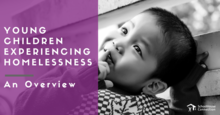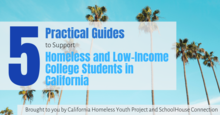Found 354 resources.
0
0
0
With political divisions on the rise and global cooperation imperiled, city officials worldwide are stepping up to lead, solving local problems while sharing solutions and innovations across borders. Making cities such as New York, Pittsburgh, and Los Angeles inclusive, safe, and sustainable is vital to the future of the United States—and the globe. Driven by the need to act locally while thinking globally, a growing number of metro areas are adapting the Sustainable Development Goals (SDGs) as a blueprint for progress.
Topics: Community development, Housing, Partnerships, Place-based, Sustainability
0
0
0

Some 15% of U.S. households with school-age children do not have a high-speed internet connection at home, according to a new Pew Research Center analysis of 2015 U.S. Census Bureau data. New survey findings from the Center also show that some teens are more likely to face digital hurdles when trying to complete their homework.
Topics: Broadband, Education, Legislation & Policy, Low-income, Racial inequalities, Research
0
0
0
The Department of Housing and Urban Development (HUD) is giving state and local housing agencies more funds to help them carry out a promising new policy to enable families with Housing Choice Vouchers to move to higher-opportunity neighborhoods. Agencies must apply by December 31 to receive the funds.
Topics: Child welfare, Funding, Housing, Legislation & Policy, Low-income, Mobility
0
0
0
Public housing residents are more likely than urban residents not living in public housing to have high rates of obesity and smoking and low rates of physical activity. This study assesses whether adding environmental interventions at public housing developments affects residents’ health-related habits and body mass index.
Topics: Exercise, Health, Housing, Low-income, Obesity, Research
0
0
0

The Youth Risk Behavior Survey (YRBS) was first developed by the Centers for Disease Control and Prevention (CDC) in 1990 to assess the health risk behaviors of youth and adults in the United States. For the first time since the survey has been widely administered, the 2017 YRBS optional question list included two questions pertaining to homelessness. Using this YRBS data from 17 states (Alaska, Arkansas, California, Colorado, Delaware, Hawaii, Idaho, Illinois, Kansas, Kentucky, Maine, Montana, New Hampshire, North Carolina, Pennsylvania, Virginia, and Wisconsin), we conducted an analysis of...
Topics: Health, Homelessness, Housing, Low-income, Metrics, Research, Youth
0
0
0

This two-page fact sheet summarizes existing data on young children who are homeless and their families, including the impact of homelessness on health, development, early learning, and well-being.
Topics: Child welfare, Early childhood, Homelessness, Housing, Low-income
0
0
0
Most states use an education funding formula to allocate state and local dollars to school districts. Most funding formulas attempt to account for student poverty, among other factors, in distributing funds. But there are several ways to count low-income students and even more ways to tie dollars to these student counts.
Topics: Child welfare, Education, Legislation & Policy, Low-income, Place-based, Research, Stability, Youth
0
0
0
Treating opioid use disorder among homeless families can reduce hepatitis C transmission, infant drug withdrawal, and overdose, which is the leading cause of death among people experiencing homelessness. Although office-based treatment is effective for homeless patients, homelessness (especially among families) creates barriers to office-based opioid treatment, such as stigma, child care needs, or distance from an office site. To reduce barriers to treatment, the Family Team at the Boston Health Care for the Homeless Program added a shelter-based opioid treatment program to its outreach...
Topics: Health, Homelessness, Housing, Place-based, Preventative care, Safety, Stability, Substance abuse
0
0
0
Resources for integrating resiliency, hope, and wellness in schools
Topics: Child welfare, Low-income, Partnerships, Place-based, Research, Safety
0
0
0

The California Homeless Youth Project and SchoolHouse Connection are proud to announce a series of five practical guides to support homeless and low-income college students in California. These series provide concise overviews of the five greatest needs of students experiencing homelessness.
Topics: Homelessness, Housing, Low-income, Post-secondary, West Coast, Youth
0
0
0
For decades, free and reduced-price lunch (FRPL) status has been used as a proxy measure for student poverty. Families filled out paper lunch forms, and these were the basis for allocating resources to schools, defining accountability goals, and conducting research. But recent changes to the National School Lunch Program mean that FRPL status is in decline as a measure of student need, and states are turning to alternatives.
Topics: Child welfare, Education, Food insecurity, Health, Legislation & Policy, Low-income, Metrics, Research, Youth
0
0
0
After decades of sprawl and suburban dominance, U.S. cities are experiencing rebounding populations, growing employment, and new public and private sector investments in places that are walkable, transit-oriented, and support diverse people and amenities. But we know that the benefits of these trends are not equally distributed, presenting an urgent opportunity for local and regional leaders to advance place-led development that produces better economic outcomes for more people in more places.
To help deliver on that imperative, the Metropolitan Policy Program at Brookings launched the...
Topics: Community development, Housing, Partnerships, Place-based, Safety, Stability
0
0
0
Over the past decade, chronic absence has gone from being a virtually unknown concept to a national education metric that provides every school in the nation with critical data on how many students are missing so many days of school it jeopardizes their academic success. The Hamilton Project at the Brookings Institution has created this interactive map using national data reported by school districts to the U.S. Department of Education Office for Civil Rights from the 2015-16 school year to allow anyone to explore rates of chronic absence at the school, district, state, and national levels by...
Topics: Attendance, Education, Metrics, Racial inequalities, Research
0
0
0
Now that free and reduced price lunch (FRPL) status as an indicator of economic disadvantage is in decline, stakeholders are turning to replacement measures. Given the extent of socioeconomic and racial segregation in most school districts, neighborhood-level measures of economic distress seem like an appealing, easy-to-measure alternative, but this seemingly intuitive solution does a bad job of predicting FRPL rates and performs worse in places where it is more critical to get it right.
Topics: Education, Health, Housing, Low-income, Metrics, Place-based, Racial inequalities, Research
0
0
0
The housing choice voucher program aims to reduce housing cost burdens as well as to enable recipients to move to a broader diversity of neighborhoods. Prior evidence shows voucher recipients still end up in neighborhoods with relatively high poverty rates and low performing schools. These constrained neighborhood choices can in part be attributed to landlord discrimination and the geographic concentration of units that rent below voucher caps. In this paper, we consider an additional explanation: the role of information and social influence in determining the effective set of potential...
Topics: Housing, Mobility, Racial inequalities, Research
0
0
0
Does a screening requirement for homeless families seeking shelter create unintended costs? In 2012, Massachusetts passed a law requiring homeless families seeking shelter to prove that they had recently stayed somewhere not meant for human habitation. Hospital emergency department discharge paperwork can provide such proof. This study explored the trends of emergency department use for shelter by homeless youth before and after the eligibility criteria was passed into law and to measure the financial impact it had on the health care system. Researchers conducted a retrospective analysis of...
Topics: Cost effectiveness, East Coast, Health, Homelessness, Housing, Legislation & Policy, Low-income, Research, Youth
0
0
0
We undertake the first rigorous evaluation of financial coaching using a randomized controlled trial at two sites. We estimate both treatment uptake and treatment outcomes, including intent to treat estimates and complier average causal effects.
Topics: Asset building, Low-income, Mobility, Research
0
0
0
In this report, we examine how housing code enforcement in Memphis, Tennessee, could prioritize public health as a key outcome and better coordinate with public health agencies, community health nonprofits, and other health care institutions. We use both qualitative and quantitative data collection and analysis to explore how housing code enforcement works and how it might expand to address public health as a key outcome.
Topics: Health, Place-based, Research, Safety
0
0
0
Are families prioritizing their housing payments by jeopardizing their health and well-being, missing utility payments, skipping meals, or failing to keep up with medical needs or medical bills? And are renters less able than homeowners to weather a financial emergency, such as an unexpected medical expense? Our research suggests this may be the case.
Topics: Asset building, Child welfare, Food insecurity, Health, Homelessness, Housing, Low-income, Research, Stability
0
0
0
Researchers often have valuable insights for program leaders and policymakers. However, their research is typically presented in formats and contexts that don’t speak directly to those who can make the best use of it. With these short videos (about 3 minutes long each), we seek to bring relevant, timely research to everyone interested in reducing poverty and increasing family stability in the United States. Each video offers a few critical messages. Our hope is that these videos, and this viewer’s guide, provoke your thinking, expand your dialogue, and give you ideas for how to strategically...
Topics: Family engagement, Low-income, Research, Stability
0
0
0

Many low-income families in the United States face challenges associated with unemployment, health, and education disparities. To help overcome these challenges, several federal programs aim to assist these families with employment, self-sufficiency, healthy relationships, and individual well-being. Understanding the effects of these programs, including whether they meet the needs of those they intend to serve, requires a strong partner. Mathematica’s team of seasoned experts has worked closely with the Administration for Children and Families (ACF), Office of Planning, Research, and...
Topics: Asset building, Child welfare, Dual-generation, Family engagement, Low-income, Research, Stability
0
0
0
The evidence on how homelessness affects children suggests policymakers should be doing everything possible to prevent homelessness and, when families who do lose their housing, to help them exit homelessness and stabilize in housing quickly. Rapid re-housing (RRH) can help homeless families in crisis.
Topics: Child welfare, Health, Homelessness, Housing, Legislation & Policy, Low-income, Research, Stability
0
0
0
The new opioid legislation—the Substance Use-Disorder Prevention That Promotes Opioid Recovery and Treatment for Patients and Communities Act (the SUPPORT Act)—signed into law on October 24 includes targeted expansions in treatment, including provisions that provide funding or flexibility to states to expand access to treatment for substance use disorders (SUD), including opioid use disorder (OUD), and health care more generally in Medicaid and Medicare.
Topics: Affordable Care Act, Health, Legislation & Policy, Low-income, Medicaid / Medicare, Safety, Substance abuse
0
0
0
Using multiple panels from the US Census Bureau’s Survey of Income and Program Participation, we find that participation in Temporary Assistance for Needy Families, the Supplemental Nutrition Assistance Program (SNAP), or public health insurance reduces the number of hardships low-income families with children experience by 48 percent and reduces the share who experience food insufficiency by 72 percent.
Topics: Child welfare, Cost effectiveness, Food insecurity, Legislation & Policy, Low-income, Medicaid / Medicare, Metrics, Research, Stability
0
0
0
The potential impacts of expanding the regulation known as “public charge” have yet to be fully understood, but experts anticipate that young children in immigrant families—more than 90 percent of them US citizens—could be disproportionately affected. The proposed rule could make it more difficult for noncitizens to obtain green cards or temporary visas by negatively weighing several factors during the immigration admissions process, including current or potential participation in safety net programs such as Medicaid and the Supplemental Nutrition Assistance Program.
Topics: Child welfare, Early childhood, Education, Food insecurity, Housing, Immigrants, Legislation & Policy, Low-income
